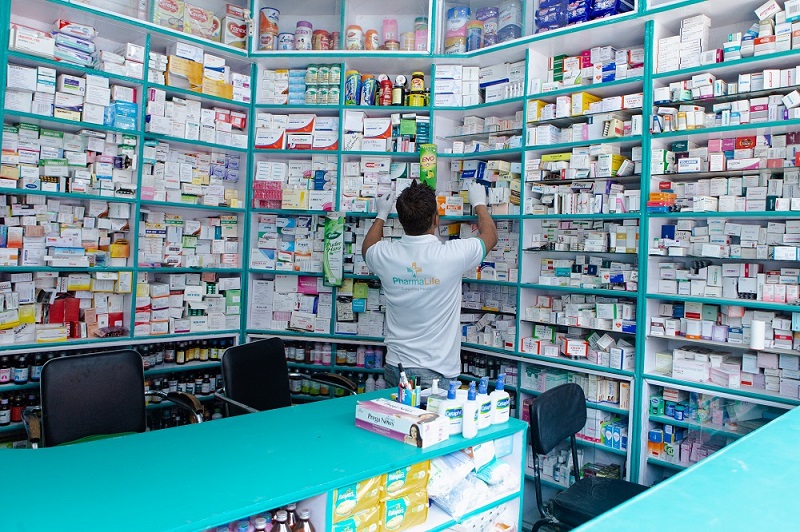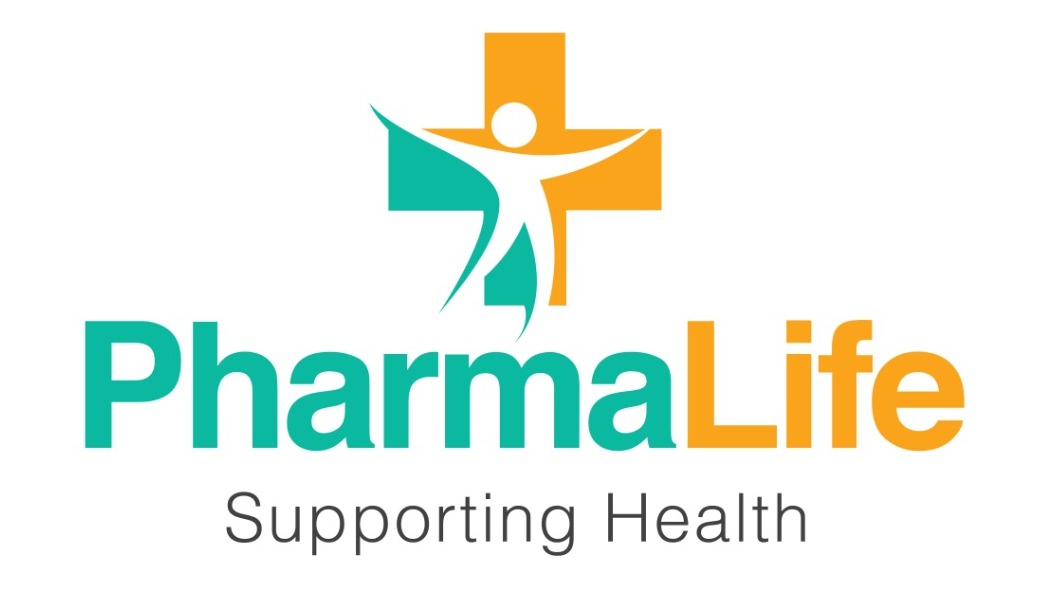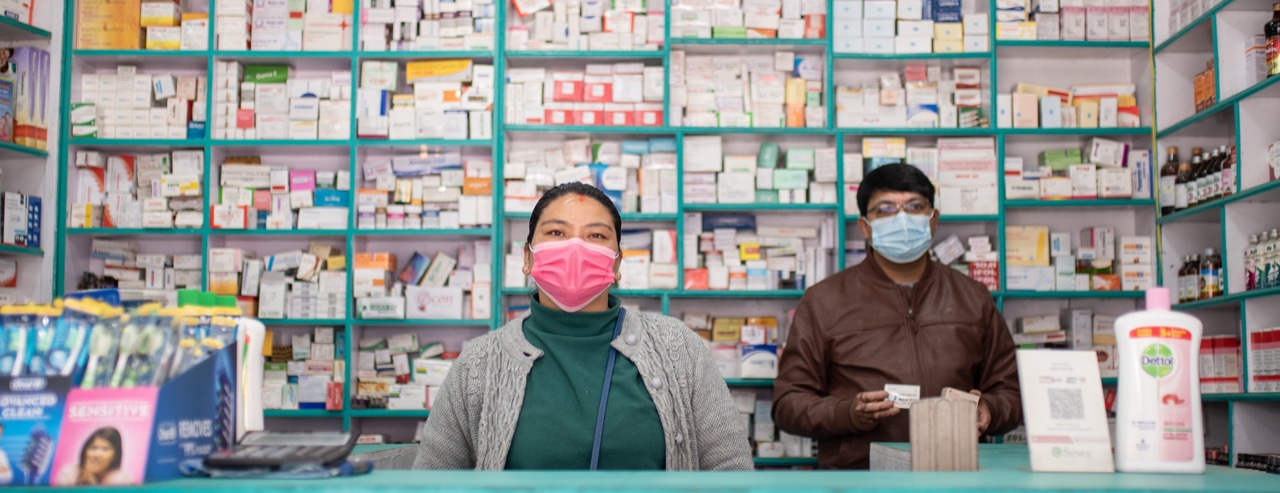The District Administration Office in Damauli had been hearing numerous complaints from the consumers about misconducts of the local pharmacies. On June 22, the DAO deployed a market monitoring team to inspect these drug stores and pharmacies.
The team, led by assistant chief district officer, found out a total of five pharmacies and two laboratories were running illegally. The monitoring team thus ordered these pharmacies near the administrative capital of Tanahun to shut down.
The team concluded many of these pharmacies were running clinics and providing health care facilities without any registration. A lot of clinics, laboratories, pharmacies, and even hospitals did not meet the government set criteria and thus were running illegally.
With such misconduct around us, service seekers and consumers like us are compelled to question – Are the pharmacies near me legal? Are the medical stores near me valid? Are the drug stores near me well registered and authorized?
Pharmacies, drug stores, and other pharma companies in Nepal are one of the most crucial aspects of the healthcare system. Dispensing and distributing medicines and providing counselling to the patients have a direct correlation with the patient’s health. Therefore, both the pharmacy and the healthcare professional associated with the pharmacy, should be legitimate, qualified and registered. The pharmacy and the pharmacist should both hold a valid license. But how exactly do you know if these drug stores and pharmacies are legitimate? How exactly do you go into the pharmacy near you being worriless and unconstrained?
Pharma Life and Registered Pharmacies


Pharma Life, fuelled by experienced and competent healthcare professionals, aims at turning the healthcare system in Nepal into a more organised one. The public healthcare system of Nepal should be accessible to all general public without any hassles. Pharma Life believes the healthcare services should follow all the government guidelines and thus be service-oriented.
Therefore our partner pharmacies and drug stores from around Nepal are all registered and run legally following government rules and regulations. Furthermore, our team of experts at Pharma Life helps those wishing to set up a new pharmacy with the registration procedure. Registration of pharmacies can sometimes seem perplexing. However, with the help of Pharma Life, you can register and set up your dream pharmacy with ease.
For service seekers and consumers worried if the ‘pharmacy near me’ is valid or not, Pharma Life makes it easy to answer the question. Our partnering pharmacies are all registered with government issued licenses that are renewed well before time. We even provide legal counselling and assistance to our partners making sure the consumers are satisfied. So, the next time you wonder “Should I visit the drug store near me?”, browse Pharma Life and visit our partner pharmacies near you all of which are legal, safe, and service-oriented.
Why Visit A Registered Pharmacy?
With growing access to the internet and the strengthening conscience among the general public, more people are now aware of the importance of a credible healthcare institution. The public healthcare system has a direct impact on our lives. Health care institutions including pharmacies, drug stores, medical dispensaries, laboratories, clinics and hospitals are all focused on helping enhance the lives of the patients.
Pharmacy and drug stores are basically where the patients receive medicines to help them feel better and beat the diseases. People often believe only the doctors and hospitals required legitimacy and credibility, and not the pharmacies. However, pharmacies are equally important in saving patient’s lives.
Drug stores and pharmacies are to run within the guidelines and criteria of the government. A legally registered pharmacy equipped with a licensed pharmacist ensures safety of the patient. Drugs if not dispensed properly might result in severe complications. There are various indications and contraindications of drugs which should be given precise attention during dispensing them. Only a well registered pharmacy operating under strict guidelines of the government can ensure such delicate precision to drug dispensing.
Moreover, a drug store has certain limitations. A drug store should only dispense medications, and not prescribe them or run any laboratory examinations. A pharmacy and a clinic are two completely different institutions, and the procedure of their registrations vary considerably. Thus, a pharmacy registered under the government of Nepal, shall respect these guidelines, further helping patient’s well-being.
Registering a Pharmacy
Healthcare system has direct impacts on lives of the general public and thus the professionals involved should deal with exactitude. A pharmacy or a drug store, thus, needs registration all the while following protocols and guidelines from the government.
The Nepal Pharmacy Council Act (2000) provides the authority to regulate and control sales and distribution of drugs to the Department of Drug Administration, Nepal (DDA). The Drug Acts of Nepal (1978) has also provided certain rights to the DDA for administration of both retail and wholesale sales of medications and drugs.
Therefore, pharmacies and drug stores come under the jurisdiction of the Department of Drug Administration. And thus, the administration is the institution to register medical stores, drug stores, and pharmacies. DDA also holds the responsibility to investigate and file cases against any offenses to check these pharmacies and their conducts.
If you are wondering how to get a pharmacy registered, or just wondering ‘Is the pharmacy near me’ registered, we will answer these questions for you. Anyone wanting to register a pharmacy in Nepal shall contact the DDA for the registration process with the following documents:
- An application to have a pharmacy registered
- Copy of citizenship of the concerned person/persons
- Registration Certificate of the pharmacist issued by Nepal Pharmacy Council
- Original and copy of Business Accreditation Certificate
- Lease agreement for the building or the space where pharmacy would operate
- A map of location of the pharmacy and letter from the local level government
- Copy of Certificate of Orientation Program
- Minutes and decisions of boards of directors (in case of Pvt. Ltd.)
- Copy of Certificate issued by Office of Registrar of Companies (in case of Pvt. Ltd.)
The applicant should present all these documents along with a handwritten application to the DDA. The applicant shall also deposit the allocated service charges by the department.
The department upon receiving the application examines all the presented documents. Furthermore, officials from the department would inspect the physical infrastructure of the pharmacy before moving forward with the registration process. The Codes on Sales and Distribution of Drugs (2071) clearly states the necessary physical infrastructure a pharmacy should develop to be registered legally. The Chapter 4 of the code has mentioned following prerequisites for operation of a pharmacy:
- Proper specified area for dispensing and patient counselling
- Availability of an adequate space to demonstrate to a patient the method of taking the drug and information
- Patient record such as details of patient’s health, treatment, and counselling
- The registered pharmacists should be good at prescription handling
- The pharmacy should focus on pharmacovigilance
After the Registration Process
An application with all the required documents fulfilling all the set prerequisites will be qualified for the registration process. Upon successful registration, the pharmacy is provided with a registration number. According to the Codes of Sales and Distribution of Drug (2071), all the registered pharmacies will have to bear the certificates and registration number issued by DDA, office of Registrar of Companies. These certificates should be always on display and visible to the consumers.
Moreover, the Registration certificate of the chief pharmacist issued by the Pharmacy Council of Nepal, should also be on display within the premises of the pharmacy. These certificates and registration numbers should be kept on display so that the consumers know the legitimacy of the pharmacy. Therefore all the drug stores and pharmacies should possess all required pharma licenses. These licenses also require regular renewal according to the respective acts from the government.
The pharmacy after acquiring these pharma licenses should further abide by the rules and regulations set by the government and other autonomous bodies. Pharmacies shall only be dispensing medications and not running any sorts of clinics whatsoever. Pharmacists should deal with narcotics with utmost care, and all these drug stores should follow the Narcotic Drugs Control Act (1976). The DDA, District Administration Office (DAO), Ministry of Health and Population (MOHP) or Ministry of Consumers Affairs can investigate these pharmacies at any time. The medical stores, pharmacies and drug stores should follow all these rules with integrity. The pharmacies should also present the pharma licenses upon investigations.
The next time you want to visit the pharmacy or medical store near you, you now know the legitimacy and regulations of these healthcare institutions. Consumers and service seekers like us should also be responsible and help the government in maintaining a safe, sound, and competent public healthcare system in Nepal. Join Pharma Life in edifying the healthcare system of Nepal.
References:
dohs.gov.np/wp-content/uploads/2017/09/Nepal-Pharmacy-Council.pdf
Nepal Pharmacy Council Act, 2057 (2000) – Nepal Law Commission


There are no comments